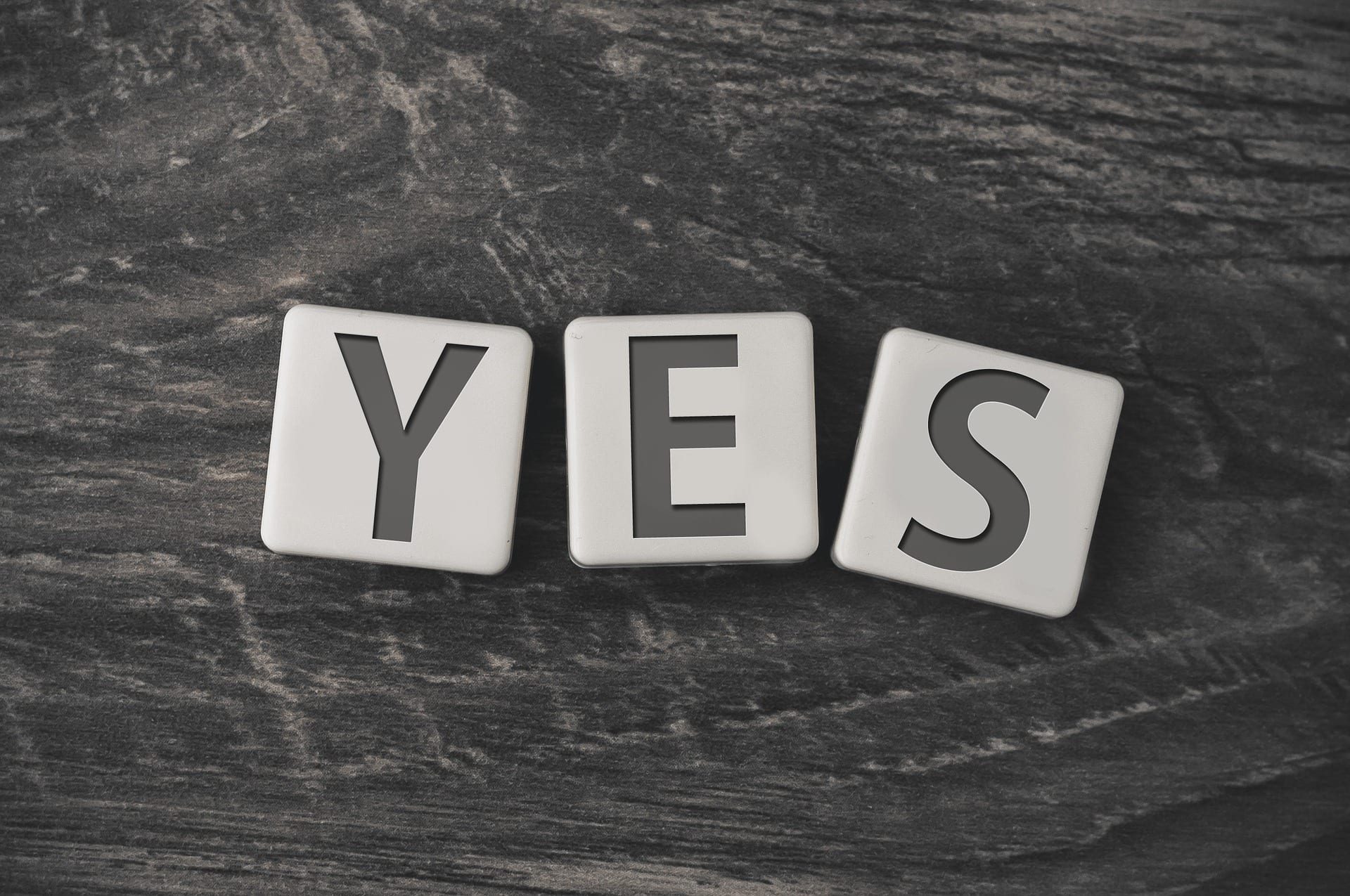Shrug off the yeahs – there are not sincere. This is your world. In your world, there is only yes!
Jolene Stockman
Ummm… but they mean the same thing, don’t they?
Well, I thought so – until I noticed that saying ‘Yes’’ received better results than saying ‘Yeah.’ It’s easy to believe that ‘yes’ and ‘yeah’ imply the same thing; it’s simply not true. But this actualization didn’t happen immediately; there was not a radical or paradigm shift event that made me go “Oh, language really does matter.”
It took me a while to realize that language is a subtle if not subconscious indicator to spur others to action. I started to understand the impact of not just what we said but how we said it. This became noticeable through typical interactions in life. Such as junior colleagues giving half-hearted effort on projects because their managers ‘ endorsement was a “yeah.” Or family expecting me to bail on dinner plans because my ‘yeah’ sounded non-committal. Even my friends didn’t take me seriously when I accepted invitations to go hiking – they said my reply gave them the impression that I had developed a fear of heights after the last trip.
It didn’t seem like it then, but I see I was to blame in each of these situations. Why? Because I had not spoken with conviction. Even though, in my heart, I knew what I wanted and how I wanted it, my lackadaisical reply of ‘yeah’’ gave the impression I was only mildly interested.
Does ‘proper’ language even matter anymore?

In an ever-evolving world, formality in language no longer holds much appeal to the younger generations. While this may seem minor in today’s world, language is integral to influencing the decisions of those you interact with. This is especially significant at work. If you answer ‘yeah’ when your boss asks, “would you like to lead Project X?”, this signifies a lack of seriousness and commitment on your part. ‘Yes,’ however, is a powerful indicator; it shows you’re serious. It relays confidence and that you have heard your audience.
Effective Communication – the Magical Power of the Right Words
I’m sure you’ve heard it said in many different ways that words have power. Truth is, very few people genuinely discover the potency of words. Most of us are subconsciously aware of it, but we don’t really take the time to truly understand it.
If you close your eyes and take a minute to imagine that there are no words in the world – that is, no speech or books, only clumsy (and most likely ineffective) communication. That would mean that nothing in existence has identification. You probably wouldn’t even have a name. Can you see how different our world and lives would be without language?

The point of this is to show that our world is run on words, meaning that the wrong use of words has a greater impact than we often realize (we only need to turn on the news or social media to see this). Since words are the tools we use to appeal to the emotion or intellect of people, it also implies that language must be tailored to the situation and audience. This makes language our most flexible tool. After all, “words are singularly the most powerful force available to humanity.” – Yehuda Berg
Ever wonder why every industry has its own specific lingo? Why do motivational speakers continue to flourish? Or why do even introverted leaders learn the art of public speaking? Because mastery of words will give you an edge in any situation. When you understand not only what to say but how and when (and to whom), your conversations will be more meaningful, relevant, and impactful – building lasting connections.
Synonymous Words do not Have the Same Effect
The essence of communication is to deliver intended messages that inspire audiences to action. – either literally or to provide information. Not every word adequately conveys what you have in mind. Using ‘cool’ has a different message than ‘excellent,’ though both deliver a positive response. As such, deliberately paying attention to the usage of particular words is just as important as improving your vocabulary.
How to Use Words to Leave a Lasting Impression
With a little practice and mindfulness, anyone can improve their communication skills! To get you started, here are five tips to get you started.
Consciously Practice Effective Communication
If you have a strong command of the language, it’s easy to be complacent – especially if you’ve had past communication successes. You can always improve! Make an effort to learn new words and make adjustments.
Resist the Pressure to Sound “Woke”
We are all guilty of getting caught up in this particular web. Still, there is no need to prove you are part of a specific generation or “hip,” especially in the workplace. If a word is not crucial in delivering your intended message, abandon it. Avoid slang and colloquial language and ensure you are aligned to your company’s jargon.
This doesn’t mean increasing your usage of archaic words. This, too, is ineffective – no need to add further complexity.
Know Your Audience

Understanding your audience is critical to effective communication. Knowing a person’s values and their reason for communicating will help you tailor the message effectively so that the right information is shared, the delivery is precise, and both sides feel heard.
Ask for Feedback
Try not to just talk at your audience. Communication is a two-way street, and for you to be effective, feedback is critical. Whether it’s face-to-face or online, provide an opportunity for feedback. Allowing space for suggestions will improve your audience’s impression and significantly improve your communication.
Believe in Yourself and Communicate Confidently
In all you say and do, be sure of your responses, yourself. Dispel all forms of doubt by clearly stating your message. ‘Yes’ will open doors that ‘Yeah’ will shut ‘ by showing sophistication, refinement, and situational awareness.
‘Yes’ is like water, when very hot or very cold – it’s useful, powerful. ‘Yeah’ is the lukewarm of water – and no one wants tepid water.



